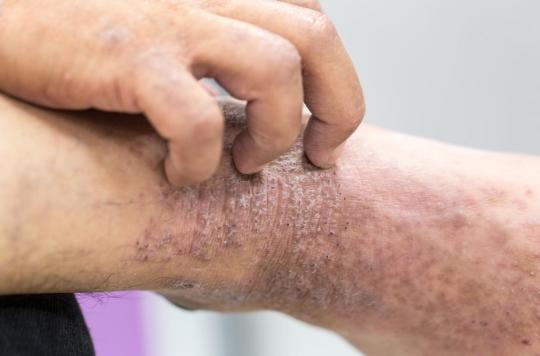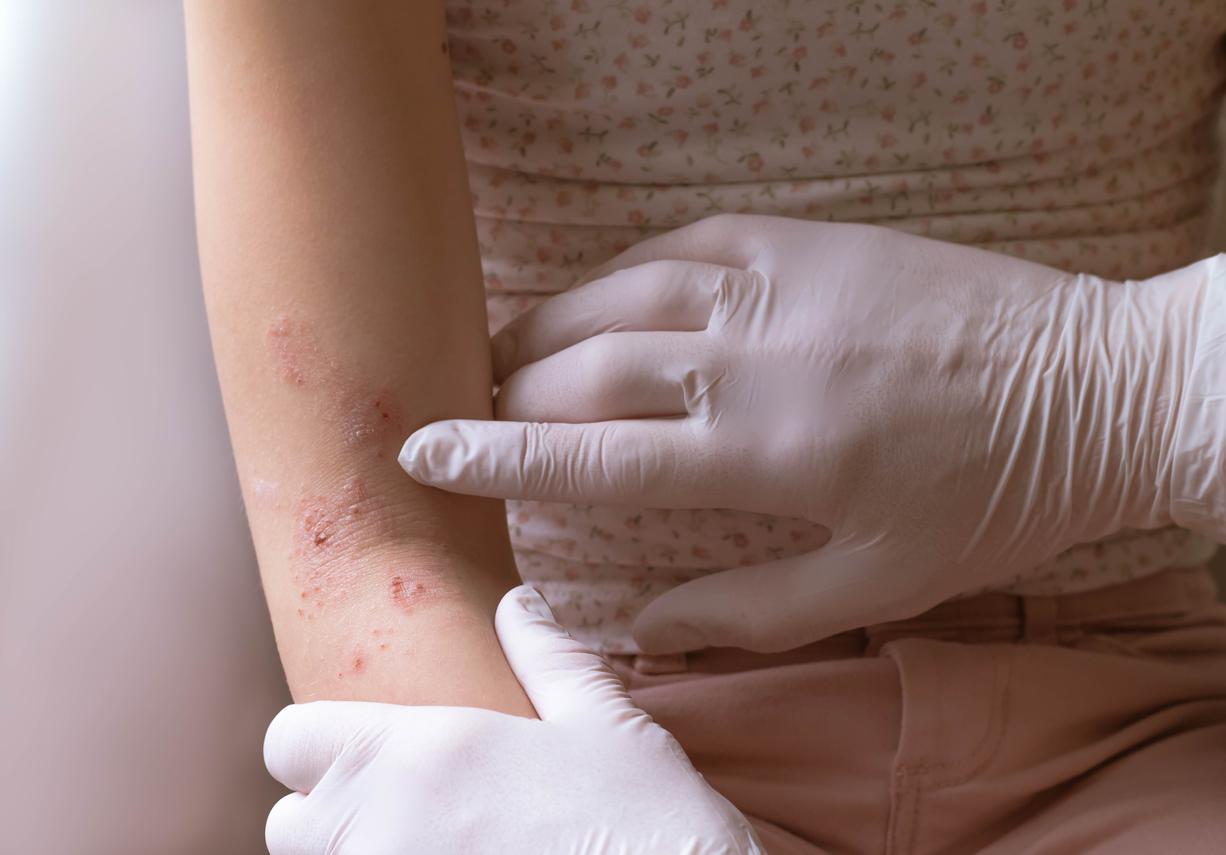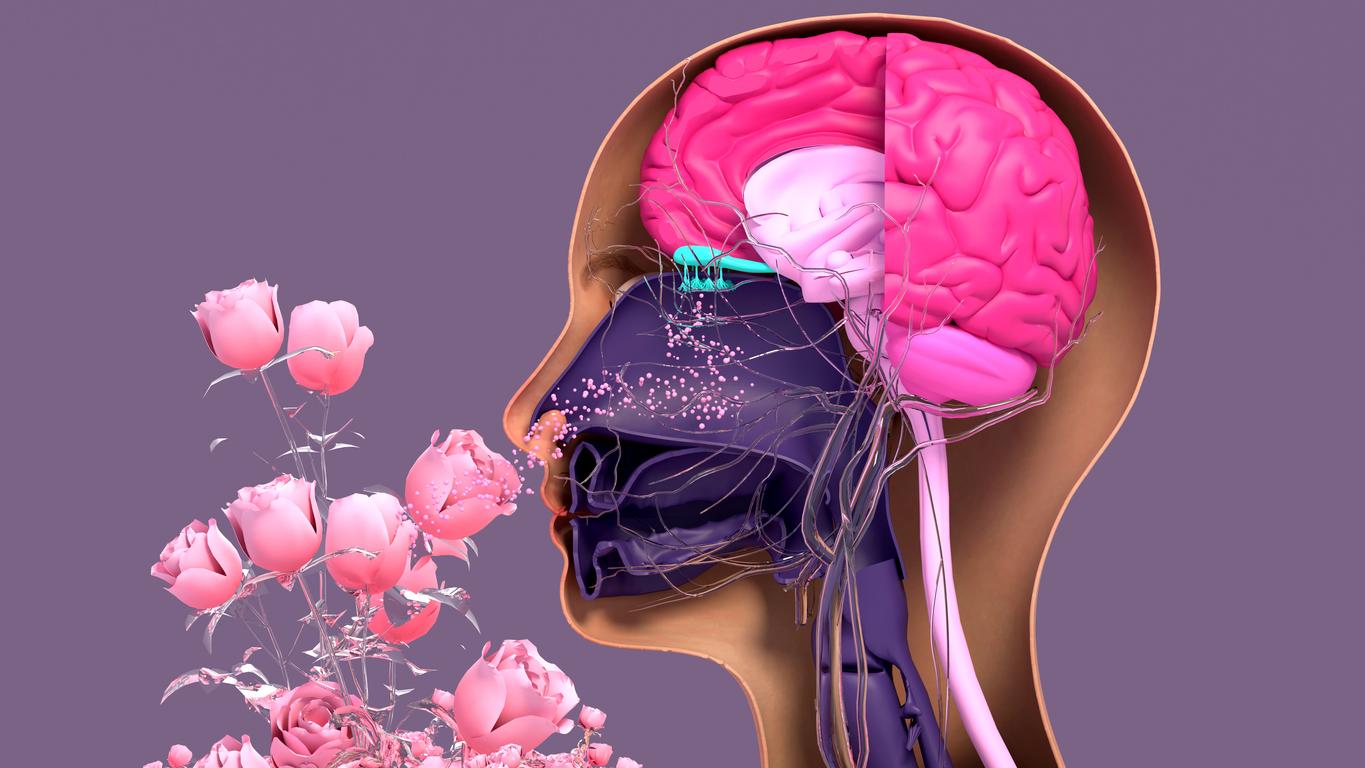According to a survey published on Monday, January 27, two-thirds of people with eczema, the third chronic skin disease in France, report a negative effect on their morale and their self-esteem.

Atopic eczema or atopic dermatitis is a chronic inflammatory disease of the skin caused by an abnormality in the body’s immune response and a deficiency in the skin barrier. It is characterized by dry skin, with rather disseminated erythematous lesions and itching. In Europe, it affects 4% of the adult population. Beyond the obvious physical inconvenience it causes, it would also have serious repercussions on the mental health of people who suffer from it. Indeed, patients would tend to be the target of mockery from those around them, which would have negative effects on their self-esteem, their social, professional or sentimental life. This is the result of an iFop study published on Monday 27 January entitled The French face eczema.
According to this survey, 88% of French people have already been affected by a skin disease. In detail, more than one in three French people (34%) has already been affected by eczema, which would make it the third most common chronic skin disease in France, after acne (59%). ) and fungal infections (43%). Unfortunately, two-thirds of those currently affected report a negative impact of the disease on their morale (69%) and their self-confidence (68%). What’s more, almost one in two patients say they have already been the subject of some form of exclusion or mockery from those around them.
And this disease may be very common, it remains very little known. Thus, 25% of people questioned do not know “precisely what it is” when they are told about atopic dermatitis.
Discouraged, many patients turn to alternative medicine
The latter “most often begins in infants from the age of 3 months. It is a skin condition responsible for regular very intense itching with acute flare-ups. The family genetic character is well established with a risk of transmission of 60% if one parent is affected and 80% if both parents are affected. Other manifestations such as asthma, rhinitis or allergic conjunctivitis are often associated. On the therapeutic level, atopic dermatitis has long been the poor relation in dermatology with essentially local care. Today, it is possible to offer other therapeutic solutions, it is a source of hope for patients affected by this disease”, explains Professor Jean-Luc Schmutz, head of the department of dermatology and allergology at the Nancy CHRU, commenting on the survey.
Despite everything, patients mainly tend to go to their general practitioner (79%) and more than one in three have never gone to consult a dermatologist (34%), despite being the only expert on the disease. This lack of information and the impression that there is no medical solution to treat their problem lead many patients to turn to “alternative caregivers” such as magnetizers (18%), non-physician acupuncturists (16 %) or marabouts and other healers (15%).
“The relative effectiveness of treatments to date and the population’s great ignorance of this complex and chronic disease may have led some patients to seek alternative medicine. Fortunately, atopic dermatitis is entering a therapeutic revolution”, comments Professor Laurent Misery, head of the dermatology and venerology department at Brest CHRU and author of the book Your skin has things to tell you.
The injunction to stop scratching
Unsurprisingly, this overall ignorance of the disease and the physical inconveniences associated with it have negative effects on the quality of life of the vast majority of patients. Among those who scratch more than 11 times a day, 87% report adverse effects on their physical well-being. In terms of self-esteem, women and young people under 25 seem particularly affected (respectively 63% and 73% of respondents). Thus, eczema psychologically weakens the people who suffer from it. More than half of patients (52%) therefore report having already excluded themselves from at least one leisure, social or professional activity.
“Atopic eczema (or atopic dermatitis) sometimes appears in early childhood, very common and can be very debilitating. It is characterized by dry skin, with rather disseminated erythematous lesions and itching. The physical impact is therefore obvious. But the psychological consequences are also important, possibly going as far as suicidal thoughts”, explains Laurent Misery.
According to the Ifop survey, 45% of affected patients say they have already been the subject of some form of exclusion or opprobrium from their relatives, especially with regard to the injunction to stop to scratch. Finally, 26% of people who have suffered from eczema have already been the subject of at least one form of verbal harassment or aggression (derogatory teasing, insults) because of their skin lesions.
.


















